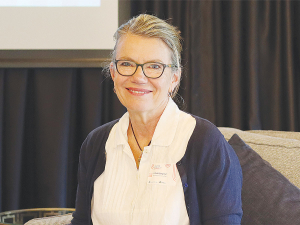Rural GP's inspiring legacy
The legacy of Dr Peter Snow continues to inspire as the recipients of the 2023 and 2024 Peter Snow Memorial Awards were announced at the recent National Rural Health Conference.
 Dr Cath Cosgrave’s keynote address will provide practical strategies for enhancing rural health workforce stability and resilience.
Dr Cath Cosgrave’s keynote address will provide practical strategies for enhancing rural health workforce stability and resilience.
One month out from the National Rural Health Conference 2024, we caught up with keynote speaker Dr Cath Cosgrave. She is an internationally awarded 'rural change-maker', strategic advisor, trainer, coach, presenter, and evaluator based in Australia. With this broad set of skills, we asked her how she would sum up her work.
"I work with rural leaders and change-makers to help address chronic workforce shortages to support the health and wellbeing of people living rurally by ensuring the local availability of professional services," Dr Cath Cosgrave explains.
Recognising the conference's role in advancing rural health initiatives, Cosgrave eagerly accepted the invitation from Dr Grant Davidson, chief executive, Hauora Taiwhenua to be a keynote speaker.
The conference's themes of equity, leadership, and workforce growth strongly align with her community initiatives, making her participation a natural fit.
Reflecting on her decision to accept the invitation, Cosgrave emphasised the conference's ethos of "Growing stronger, together" which resonates with the principles of the Attract Connect Stay Framework and the Community Connector Program, which are the foundation of her work in Australia. These initiatives priorities community-driven efforts to strengthen healthcare and social care workforces in rural communities.
Cosgrave's keynote address and workshop at the conference will provide attendees with practical strategies for enhancing rural health workforce stability and resilience.
Rural communities are facing unprecedented challenges due to climate change, economic uncertainty, and in the health sector, a workforce that is at breaking point. Through real-world successes and evidence-based strategies, attendees will gain a deep understanding of how whole-of-community driven efforts can significantly enhance rural health outcomes.
Furthermore, Cosgrave envisions a future where rural communities fully embrace the philosophy of "Growing stronger, together". Inspired by the conference theme, she emphasises the importance of genuine integration and commitment from healthcare professionals and their families to rural communities.
Through initiatives like the Attract Connect Stay Framework and the Community Connector Program, Dr Cosgrave believes that rural healthcare can thrive, supported by equity, resilience, and sustained growth. Community participation and leadership will play a crucial role in ensuring the vitality and responsiveness of rural healthcare, enrighing the lives of residents and healthcare providers alike.
"The conference is an opportunity to interact with a diverse group of rural health professionals and stakeholders, sharing tangible outcomes and empowering attendees to drive positive change in their communities," Cosgrave adds.
The National Rural Health Conference is being held in Wellington from the 5-6 April, bringing together a broad spectrum of rural health care workers and supporters from across New Zealand.
"This is an important and timely opportunity to connect and share knowledge that can influence the New Zealand health system reforms and ensure that every rural New Zealander, Māori, and non-Māori, has the opportunity to thrive and enjoy healthy and rewarding lives," says Davidson.
Fonterra’s impending exit from the Australian dairy industry is a major event but the story doesn’t change too much for farmers.
Expect greater collaboration between Massey University’s school of Agriculture and Environment and Ireland’s leading agriculture university, the University College of Dublin (UCD), in the future.
A partnership between Torere Macadamias Ltd and the Riddet Institute aims to unlock value from macadamia nuts while growing the next generation of Māori agribusiness researchers.
A new partnership between Dairy Women’s Network (DWN) and NZAgbiz aims to make evidence-based calf rearing practices accessible to all farm teams.
Despite some trying circumstances recently, the cherry season looks set to emerge on top of things.
Changed logos on shirts otherwise it will be business as usual when Fonterra’s consumer and related businesses are expected to change hands next month.

OPINION: Here w go: the election date is set for November 7 and the politicians are out of the gate…
OPINION: ECan data was released a few days ago showing Canterbury farmers have made “giant strides on environmental performance”.